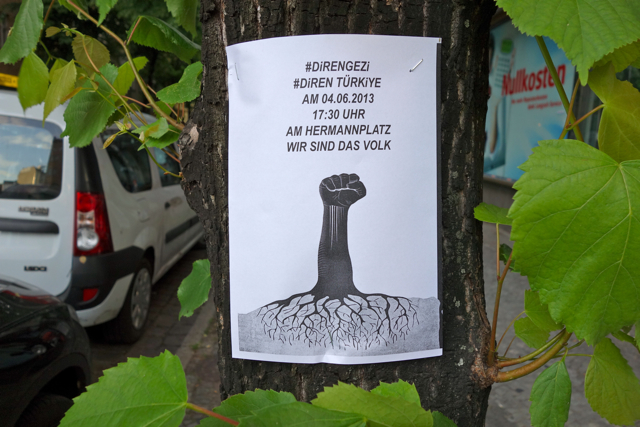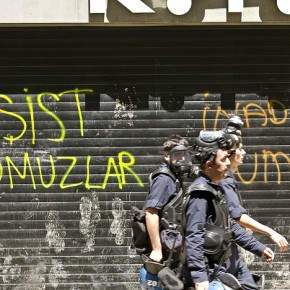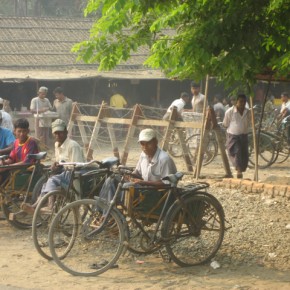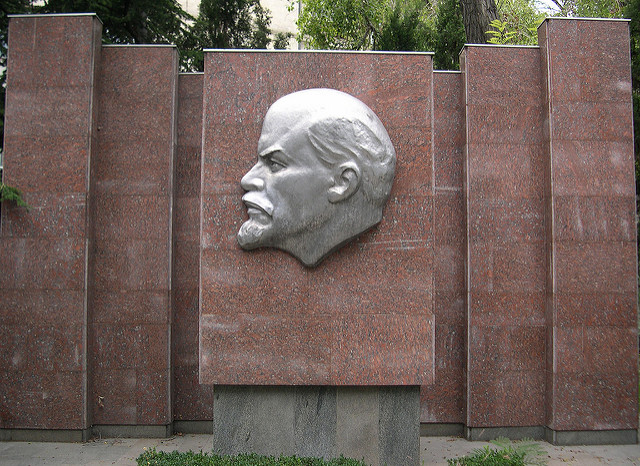It was too simple. Black and white, with a drawing and some type, from a distance, it had the feel of an old school punk flyer. Upon closer inspection, it turned out to be solidarity demo flyer, to support Occupy Gezi. Sporting Turkish hashtags (“DiREGEZI”) it could not have been more contemporary, either. Yet, written at the bottom was a distinctly identifiable German phrase: Wir Sind Das Volk (“We are the people.”)
Most recently identified as a slogan of 1989-era pro-democracy protestors in the former DDR, the phrase has complex historical roots – it was also used by East Germany’s Communist government -as well as alluding to, unfortunately, the Third Reich (‘Das Volk.”) Considering the events that have taken place in Istanbul the last few days, it’s not hard to imagine this particular invocation is of the pro-democracy, 1989 variety.

Still, for Berliners, accustomed to seeing Turkish-language political flyers, the simplicity was a surprise. Traditionally design-heavy and colorful, displaying the influence of 1920s Soviet poster art, leftwing street media, aimed at German Turks, is easily identifiable. Take, for example, the Marxist-Leninistische Kommunistiche Partei Türkei Nordkurdistan flyer, above. Posted outside my flat last month, on a city utility box, all of the aformentioned elements are employed.

Frequently mixed in with other types of flyers (in this photo, music adverts) in Berlin, Turkish political posters are often indistinguishable from what’s going on around them. So what if they’re in another language. All the other flyers seem to be aimed at Anglos, or so it appears. Particularly for band gigs, or DJ nights. “Turkish is the language of the left,” a visiting American friend once joked, as he photographed a similar display. “English, however, appears reserved for the arts.”

Well, not for all of them. Music, perhaps, but when it comes to film adverts, these sorts of generalizations are more easy to break down. This flyer, posted last fall, near Hermannplatz, is for a documentary about the 1980 military coup in Turkey. Though equally colorful, it lacks the overly didactic element, typical of the communist posters, despite its use of photos of victims of military rule.
For those surprised by the recent upheaval in Turkey, the abundance of flyers like this, in European cities with large Turkish communities, is instructive. Turkish immigration is not just economic. There’s also an obvious political dimension to it. Though one might be inclined to ascribe such sentiment to Berlin, one can find many similar advert and street art elsewhere in Germany.
Photographs and commentary courtesy of Joel Schalit





